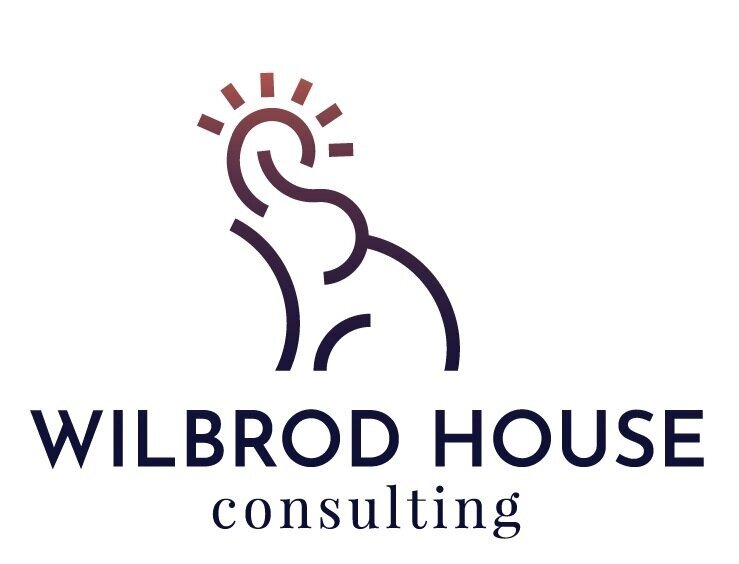Organizational Values: The Sacrificial Lamb of Strategic Planning
Over the past several years, I’ve come to realize that organizational values are the sacrificial lamb of strategic plans everywhere.
Tell me if this sounds familiar:
The time has come for your next strategic planning retreat. But ....
You’ve got a tight budget.
You can only dedicate so much time to a retreat - no more than two days (and even that feels extravagant).
And, if you’re being brutally honest with your facilitator - you’re not sure that spending time on a values statement is necessary. You already have one, and it seems just fine. Your values have been up on your website since your last strategic planning retreat five years ago. No one has EVER complained about them.
Sure, they’re a bit generic, and ok, if you are really pressed, you’re not sure if anyone really notices that they’re there or pays any attention to them.
But why invest the time and energy in reviewing values that no one has objected to? Besides, what kind of monster would fault a commitment to “transparency” or “equality” or “diversity” or “dignity” or “accountability”?
Besides, the values take care of themselves. They’re just kind of … there, doing their own thing. They seem fine. So, if you have to sacrifice something, then it has to be a review of your values statement. Maybe next time, little lamb!
Enough with the metaphor, Monica. Why are you going on about this?
As a facilitator, I’ve heard many teams express that they have no choice but to sideline a review and update of their values statement - that is, if they even have one.
I completely understand why this happens, especially for not-for-profit organizations. Not-for-profit leaders often have to make less-than-optimal decisions, given the reality of budget and time constraints. If you only have two days for a retreat, and your team can’t invest in pre-retreat work, your agenda is probably already very ambitious.
I get it. I have had to make these kinds of trade-offs too. I know it’s hard. But we have to realize that these sacrifices have consequences.
An intentionally crafted, meaningful and operationalized values statement yields so many benefits.
As long as you stick to the principle “Say what you mean and mean what you say,” you will find a deep dive into organizational values to be very helpful - and illuminating. A strong values statement will:
1 - Establish a set of criteria to guide decision-making processes at every level of your organization. For example:
Should you accept that donation from Company X? Look at your values statement (and your Acceptance of Gifts Policy!). What would it say about your organization if you accepted the donation?
Recruiting new board members? If your values statement includes the words “diversity”, “equity” or “inclusion”, you better be thinking about how you operationalize these values throughout the recruitment process - and in the way that new board members are integrated into your team once they’ve been elected.
2 - Communicate what makes your organization unique and strengthen your brand.
Take the time to define the content of your values so that it is not simply a collection of vague buzzwords (like my word cloud!). This will demonstrate integrity by showing that you’ve thought about how your values inform the way you do things. It will also help your team - from board to management to front-line staff - articulate what your organization does and why they are so committed to your work.
3 - Steward a positive workplace culture, and better deliver on your mission:
Imagine one of your values is “Innovation,” and you define this as “We welcome new ideas, try new things and improve through every experience.” This should prompt you to evolve your operations to create spaces and opportunities for your team to do this. And if you’re not really willing or able to do this … well, then this shouldn’t be in your values statement (remember: say what you mean, and mean what you say!)
Now imagine one of your values is “Accessibility,” defined in part as “Minimizing barriers to program participation.” This should prompt you to develop policies and processes that ensure regular assessments of and improvements to program accessibility (if they aren’t already in place). If something like this isn’t happening, then your values statement should serve as a reminder that you have to do something about it. Your integrity depends on it.
It’s time to give your organizational values some attention.
And you don’t have to wait until your next strat planning process to do this. In fact, I think it’s often better to do this before a strategic planning retreat. Bringing your team together to co-create an intentional values statement is not just a fantastic team-building activity, but it can also help you start to evolve the bedrock of operations now. Not everything has to be or should be put on hold until your next strategic planning process. And I think it's important to give your team time to think about how your organizational values can and should inform your work. I really don’t see any reason to delay this vital conversation.
If you're looking for a facilitator to help your team co-create a new values statement, I'm here to help. Just send a request through my website.




